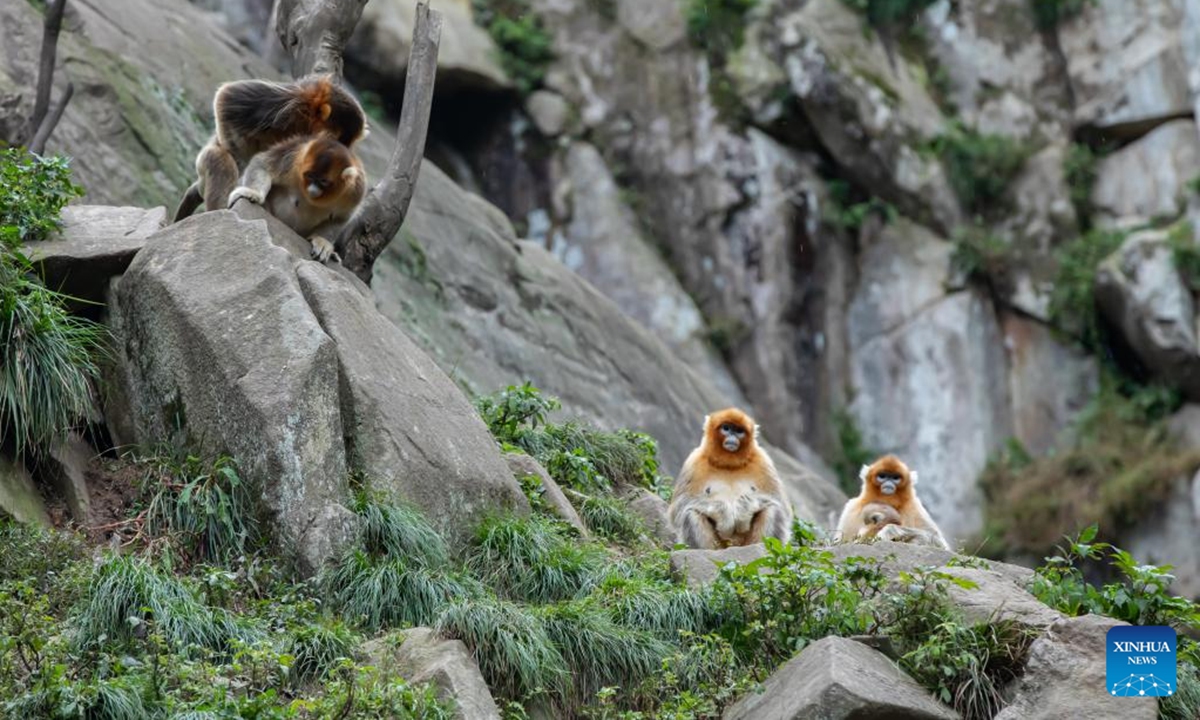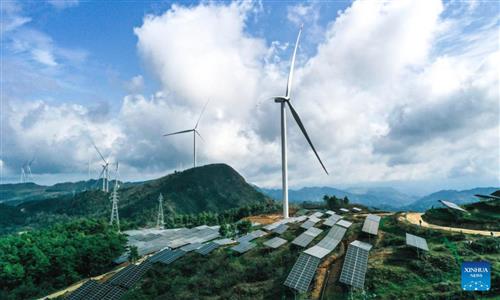
Sichuan golden snub-nosed monkeys are seen at the Yuhe area of the Giant Panda National Park in northwest China's Gansu Province, Oct. 14, 2023.(Xinhua/Zhang Xinxin)
China has registered nearly 100 key areas of natural resource rights, said a report released by Ministry of Natural Resources on Monday.
If we consider nature as one big family, then water flow, forests, mountains, grasslands, wastelands, mudflats, sea areas, uninhabited islands, and confirmed mineral resources are all members of the family, Hu Shanshun, director of the Natural Resources Registration Bureau under the Ministry of Natural Resources (MNR) said when releasing the report on Monday, which marks the Earth Day.
To understand these family members, it is necessary to investigate their backgrounds, set up records, ensure rights registration, and give nature a "household registration," Hu noted.
Among nearly 100 registered natural resource rights are Wuyi Mountain, the Giant Panda National Park, Dafeng Milu Nature Reserve, and Shandong Kunyu Mountain National Nature Reserve. The registration has covered different types of natural resources including nature reserves, forests, wetlands, grasslands, rivers, lakes, confirmed mineral reserves, sea areas, and uninhabited islands, according to the report.
Either a single natural resource, such as oceans, deserts, wastelands, or a mix of various types of natural resource elements, such as national parks and other nature reserves, can be registered within natural ecological spaces, the report noted.
China's establishment for registration of natural resource rights has gone through a long process, and Hu said that "it is a new reform initiative for which there is no existing experience at home or abroad."
The pilot program for this initiative, first approved in 2016 at the 29th meeting of the Central Leading Group for Comprehensively Deepening Reforms, was to be implemented across 32 pilot areas in 12 provinces including Northeast China's Jilin Province.
Over the years, the ministry has also studied technical standards related to natural resource rights registration and established a nationwide unified registration information system.
In 2019, the ministry and four other government agencies jointly issued the "Interim Measures for Unified Registration of Natural Resources Rights." In 2020, the "Operational Guidelines for Natural Resource Rights Registration (Trial)" were released.
The "household registration" of natural resources will register their natural conditions, including the location, spatial range, area, type, quantity and quality, as well as the ownership status, including the subject of national natural resource ownership and the entity responsible for fulfilling the owner's responsibilities, the report said.
Through the registration of natural resource rights, it is made clear who owns and manages natural resource assets, Hu noted. He also said the process helps address issues such as incomplete ownership, unclear ownership boundaries of one natural resources.
The registration will provide property rights support for the protection of natural ecological spaces, the promotion of green and low-carbon development and ecological civilization construction, according to the report.


